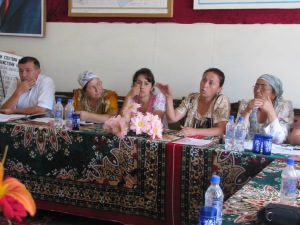Azdavay, 30 June 2014
The workshop, which gathered representatives of rural tourism from Ukraine, Georgia and Turkey in Azdavay, Kastamonu Province, Turkey on 21-24 June 2014, concluded with promising outcomes.
Vesselka Consulting Ltd and World Wide Fund for Nature (WWF) – Turkey successfully concluded a three day workshop, hosted by the Küre Mountains Ecotourism Society at its historical mansion, Yanık Ali Konağı, in Azdavay, Kastamonu Province, Turkey. The approach, overall direction and organization for the management of an integrated program for rural eco-tourism around the Black Sea were confirmed during the workshop.
Şehmus Günaydın, The Governor of Kastamonu Province opened the workshop and welcomed the representatives from Ukraine, Georgia and Turkey. The workshop included presentations of experiences in developing and operating rural eco-tourism destinations, issues and needs and proposals for further development.
At the end of the workshop, the participants agreed upon an action plan to implement the Program in Ukraine, Georgia and Turkey with the establishment of National and Community management organizations that will develop the appropriate business plans, identify eco-tourism products and continue an exchange program of ideas and cooperation within the Program framework.
All participants agreed to move quickly to create an organizational structure based on community and national offices working together in each country under an umbrella International Secretariat which will define overall policy for the Program. Principles of sustainable eco-tourism based on international standards will guide the activities of the Program members.
It was also agreed to create a communications network to facilitate information exchange among the participating countries and will develop the dedicated web portal for traveler reservations and information while providing maximum international exposure and for the destinations.
This Program is the only regional venture of its kind for the Black Sea and will maintain its commitment to provide unique travel experiences while preserving local cultures and the environment.
For more information, contact Nataliya Tkachenko at ntkachenko@vesselkaconsult.com or Richard Shepard at rshepard@vesselkaconsult.com or visit the website at www.vesselkaconsult.com


